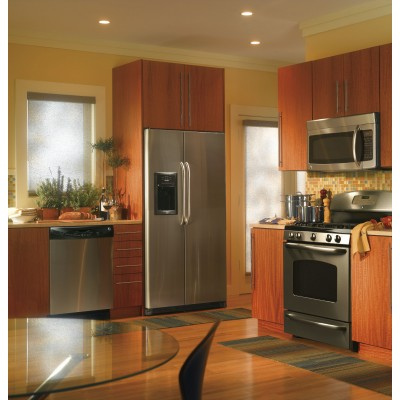 NEWS
NEWS
 NEWS
NEWS
 NEWS
NEWS
With a growing energy gap driving demand for smart home appliances, one Chinese company could see its opportunity to boost market share in the U.S.
The latest report from Research and Market projects that by 2020 the smart home appliance market will reach $38.35 billion in relation to the growing global energy demand. According to the U.S. Energy Information Administration, the global energy demand will increase by nearly 37 percent by 2035 as households increase the use of home appliances. This creates a demand/supply gap for power companies, but can be resolved with the use of smart home appliances.
Smart home appliances are described as next-generation home appliances that are able to receive, process and transmit information, and communicate with devices such as smartphones, tablets, and laptops that delivers real-time energy consumption data to users, as well as allow for remote control operations of the said appliances. By giving users real-time information on energy costs, consumers will be encouraged to reduce use of said appliance during peak hours.
Because of the perceived benefits of smart appliances, it is expected that the smart home appliance market will see a significant growth in the coming years with countries in the Asia Pacific region such as China, India, and Japan driving the demand for smart, connected appliances.
The report also mentioned that certain companies already established in the smart home appliance market will benefit from this growth, such as Apple, Electrolux, LG, Panasonic, Samsung, Whirlpool, BSH Hausgerate, Philips, Miele, GE and Haier.
What’s interesting in the list of companies mentioned is GE Co. and Haier Group, as GE has agreed to sell its appliance business to the Chinese manufacturer for $5.4 billion. This may be the break Haier needs to finally break into the appliance market in the U.S., which is dominated currently by Whirlpool Corp.
GE has been manufacturing refrigerators, freezers, clothes washers and dryers under different brands such as Monogram, Café, Profile and Artistry, which Haier will control if the deal goes forward. In total, Haier will be in control of nine appliance-manufacturing facilities, 12,000 U.S. workers and the GE brand name that has been around for 40 years. This also comes at a time when GE is moving away from consumer electronics products to focus on the Industrial Internet of Things, and Haier is trying to break into the connected home market.
This is not the first time GE’s appliance business has been put up for sale. In 2014, there was an agreement between Electrolux AB for $3.3 billion, but the deal fell through before the end of 2015 when it was perceived as something that would diminish competition and result in higher priced appliances, with one lawyer stating that it would be “bad for the millions of consumers who buy cooking appliances every year.”
GE is confident that the deal with Haier will not be blocked by antitrust regulators, seeing as Haier’s market share in the U.S. is not as expansive as Electrolux’s foothold.
Support our mission to keep content open and free by engaging with theCUBE community. Join theCUBE’s Alumni Trust Network, where technology leaders connect, share intelligence and create opportunities.
Founded by tech visionaries John Furrier and Dave Vellante, SiliconANGLE Media has built a dynamic ecosystem of industry-leading digital media brands that reach 15+ million elite tech professionals. Our new proprietary theCUBE AI Video Cloud is breaking ground in audience interaction, leveraging theCUBEai.com neural network to help technology companies make data-driven decisions and stay at the forefront of industry conversations.